Andrew Rule: Revenge a dish served hot in Melbourne’s tobacco war
For Middle-Eastern organised crime groups embroiled in a vicious war over Melbourne’s illicit tobacco trade, revenge has become a more potent motivation than profit.
Andrew Rule
Don't miss out on the headlines from Andrew Rule. Followed categories will be added to My News.
One difference between humans and animals is the capacity to laugh. The other is to want revenge.
Animals will fight or kill to eat or to defend themselves and their young, and sometimes for blood lust. But those savage instincts don’t include vengeance.
Humans, on the other hand, love to see their enemies suffer, and will make plans to achieve it. Premeditated malice is us.
That powerful motivation is the background of the vicious war between Middle-Eastern organised crime groups in Australia. For them, revenge has become a more potent motivation than profit.
One man has taken gang and family rivalries to new heights, and across great distances, in a way never seen in Australian crime before.
His name is Kazem Hamad and he fights firepower with fire. Whereas most gangsters go for guns, Hamad uses arson to humble his enemies. So far, he’s winning.
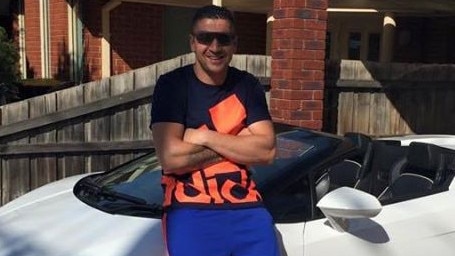
“Fire might be the devil’s only friend,” says one longtime watcher of Melbourne’s underworld, quoting the lyrics of American Pie. “But it’s on pretty good terms with Kaz as well.”
It has been dubbed the Tobacco War, a short label for a lot of pain. There’s more to it than a battle for market share in the crazily lucrative illicit cigarette trade created by Australia’s unwisely punitive tobacco excise.
The war is more a campaign of revenge orchestrated by one man. It has some similarity to the Gangland War that flared 20 years ago, when Broadmeadows drug dealer Carl Williams used profits to get his enemies shot, one after another.
It is now folklore that when gangster Jason Moran “gut shot” the then obscure Williams in Gladstone Park in 1999, the bullet wounded not only William’s belly but his pride, igniting a murderous desire for revenge.
The result: a spate of shootings that would kill both Jason and his half-brother Mark and Jason’s father Lewis Moran, among many victims of a vendetta that upended the underworld.
But crime, like weeds, hates a vacuum. A new breed of gangsters emerged to suck massive profits from rackets that had enriched Williams and Morans and their contemporaries.
Among the rising generation was a teenage Iraqi refugee who had arrived in Melbourne with his parents in 1998, after the first Gulf War.
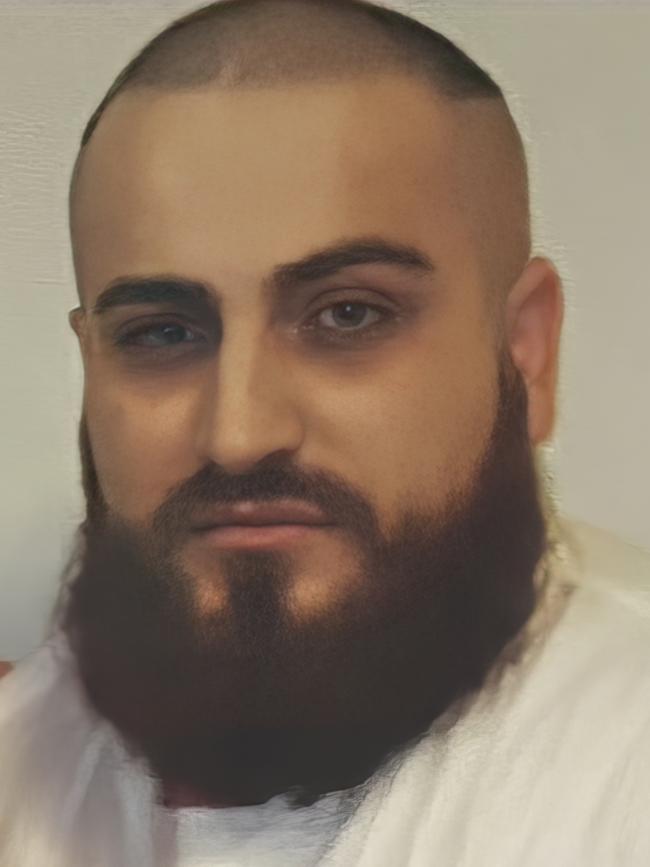
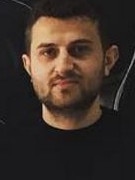
His name was Kazem Hamad, soon shortened to Kaz, the name everyone uses for him.
The family came from Basra, the ancient Iraqi slave port at the junction of the Tigris and Euphrates rivers. The parents and younger children would return there but Kaz stayed in Melbourne, “couch surfing” and learning to survive by his wits.
The death of his brother in an Iraq bombing raid in 2009 affected him, according to psychiatric reports later used in court. In 2010, he was charged over a vicious kidnapping and extortion but after key witnesses withdrew statements, the charges lapsed.
By then he had graduated to be part of a new wave of middle eastern criminals whose underlying rivalries with each other often went back to old tribal and regional differences in the middle east.
They could share a religion, and often a language, but that didn’t mean that immigrants from Iraq, Iran, Lebanon and Afghanistan got on with each other in the suburbs. The lure of fast money could bring them together in criminal capers. It could also tear them apart.
In mixed migrant communities everywhere, of course, early arrivals inevitably resent the later ones. Among the criminally inclined minority, mutual greed can paper over these cracks with cash — but it makes for an uneasy peace, readily broken.
Three incidents triggered Kaz Hamad’s thirst for revenge.
Hamad and his crew were close to Kadir Ors, a northern suburbs drug dealer murdered at Campbellfield Plaza in 2016.
George Marrogi, a one-time Hamad ally, fired the fatal shots, a choice that has probably come back to bite Marrogi, now in prison for a long time.
Prominent kickboxer Sam “The Punisher” Abdulrahim was with Ors when Marrogi jumped from a car and opened fire. “The Punisher” was not injured, leading to speculation that he was secretly in cahoots with Marrogi, who clearly had a tip-off about where to find the elusive Ors.
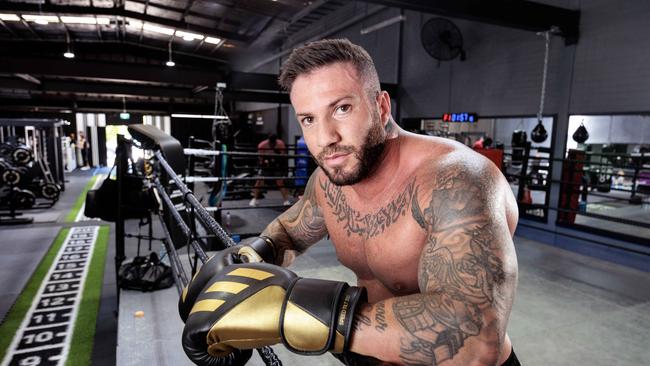
The shooting was salt in an existing wound for Hamad, whose brother-in-law Khaled Abouhasna had been killed in an ambush in Altona Meadows the year before.
Hamad was with Abouhasna that night. Apart from the pain of losing family, Hamad suspected he himself was the intended target. Edgy gunmen shooting the wrong people is a feature of the gangland wars.
Apart from the matter of who pulled the trigger, the street-smart Hamad must have realised that someone had told the shooter where to wait. That traitor had to be an insider.
Hamad’s narrow escape that night led to a court order suppressing his identity for his own protection, an order that was in place while he served eight years for serious drug charges laid in 2015.
That was only after exasperated police grabbed Hamad, bundled him on a private jet and flew him to Christmas Island detention centre (at a cost of some $100,000). But within weeks he was hauled back to Melbourne to face the drug charges because he’d embarrassed authorities by standing over other detainees, using their mobile phones to conduct his business from the island.
In mid-2023, he was released, stripped of citizenship and deported and could only then be publicly named.
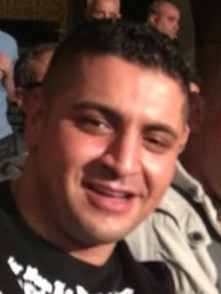
Strangely, being deported has helped Hamad stay safe while he has punished and persecuted his enemies back in Melbourne.
Apart from the murders of his brother-in-law and his friend, Hamad brooded over another piece of unfinished business, dating from when an enemy brutally assaulted him.
Assaulting Hamad was like the Morans’ clumsy wounding of Carl Williams, which started an extermination campaign. And like an ugly incident in Carlton in 2002 when millionaire drug baron Tony Mokbel was beaten half to death by West Australian Troy Mercanti, a Coffin Cheaters member and bodyguard for the Bulgarian drug dealer Nik Radev.
Mokbel survived mainly because Carlton identity Mick Gatto asked young gunman Andrew “Benji” Veniamin to take him to a doctor. Mokbel and Veniamin became close, a friendship that would lead to several fatal shootings — including that of Radev in early 2003, a classic revenge killing.
Hamad is no stranger to shooting. He’s the obvious candidate, for instance, to have ordered the murder of Mohammed “Afghan Ali” Keshtiar, in South Yarra last August.
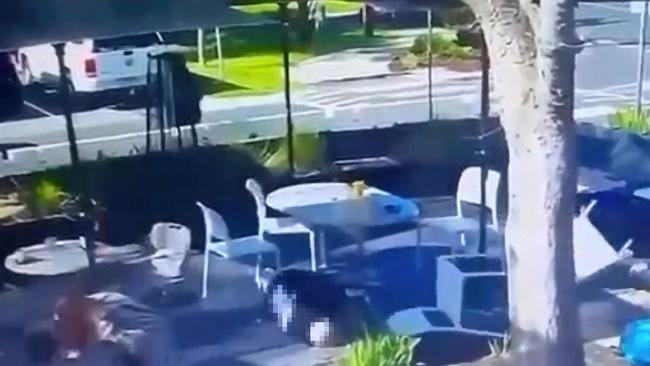
Like Gavin Preston, shot dead at a Keilor cafe a few weeks later, Keshtiar made the mistake of not staying out of sight around the clock. Both were killed in public places where others knew they would be, in Keshtiar’s case walking the short distance from a gymnasium to the secure luxury apartment building where he was living.
But for Hamad, old-style hits are so 2003 — costly, hard to organise and prone to attract so much police heat that the game is not worth the candle.
Public assassinations in surroundings that could endanger the lives of innocent citizens guarantee media and public pressure on police and politicians. Shooters facing long sentences can be tempted to “give up” those who hire them.
Kaz Hamad is a thinker. In “exile”, he has worked out how to sidestep the problem that his Australian enemies are extremely surveillance-savvy — and are so heavily watched by police that they are tricky to target in person. Instead, he uses systematic arson against property as a long-range weapon.
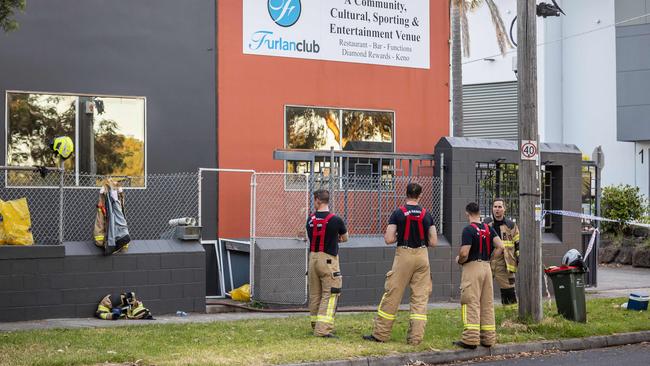
Fires are cheaper, easier to organise from 12,000km and punish enemies financially, repeatedly and very publicly. Arson is as old as time but Hamad has refined it in a way that hurts his enemies with minimal risk and maximum effect.
In recent months, dozens of rapid-fire arson attacks against a string of tobacco outlets have flared into something more sophisticated.
Last November a plush Docklands restaurant, Karizma, owned by the Haddara clan, was torched twice in two days.
The damage was huge so the Haddaras’ chances of insuring the business in future will require huge premiums. Besides, who wants to eat at a venue that gets firebombed?
Owners and promoters linked to two other premises torched on the same night last month know exactly how the Haddaras feel.
The Furlan Club in Thornbury caught fire about 2am on February 22. Hours later, The Emerald reception centre in Thomastown was also torched. The link was obvious.
The Furlan Club fire derailed a long-awaited and profitable fight by Sam “The Punisher” Abdulrahim, the same former friend suspected of betraying Kaz Hadam in the Ors hit.
The fire at The Emerald hit the backers who paid big money to bring out a Lebanese singing star to perform there that week. The two fires cost owners and investors both money and prestige.
The lesson: Hamad can call the shots from half-way around the world with little chance of repercussions while his targets seethe in impotent rage.
These are people used to getting square but in Hamad’s game it’s hard for them to find anyone to hurt back.
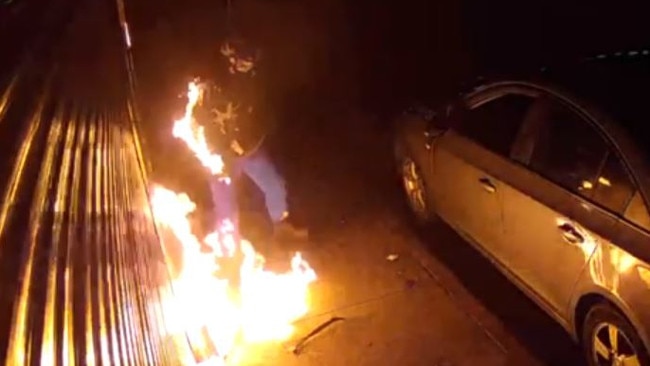
The police tend to have the same problem. While they might sometimes arrest an “errand boy” for arson or car theft, it’s hardly going to stop Hamad reaching out from another time zone.
A court recently heard that Police believe that Hamad’s younger brother Maytham, based in Western Australia, is one of several “lieutenants” in touch with the mastermind through encrypted telephone apps, but that strong suspicion doesn’t prove anything.
Those who know Kaz Hamad contrast his pleasant demeanour with his “game face”. Former prisoner officers describe him as a pleasure to deal with.
One officer says Hamad was too smart to jack up staff who could make his life inside less pleasant.
“He was good with everyone,” the officer said. “He was like Rocco Arico. The nicest bloke you could ever meet.”
Hamad was like two completely different people, he said. The violence and aggression was strictly for business.
If Hamad had a role model, they say, it was the smooth Mr Big dubbed “the new Tony Mokbel” who flew very high, until his wings were clipped in 2011.
That arrest, along with several others, caused the loss of Mr Big’s mansion, his Ferrari and other lavish assets. The same man has recently been arrested again after a huge drug bust interstate.
His apprentice, meanwhile, is now close to 40. If he’s wiser than his mentor, he will stay exactly where he is, a puppet master laughing at his enemies’ pain. He’s only human.



